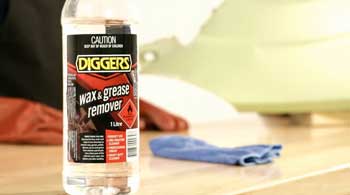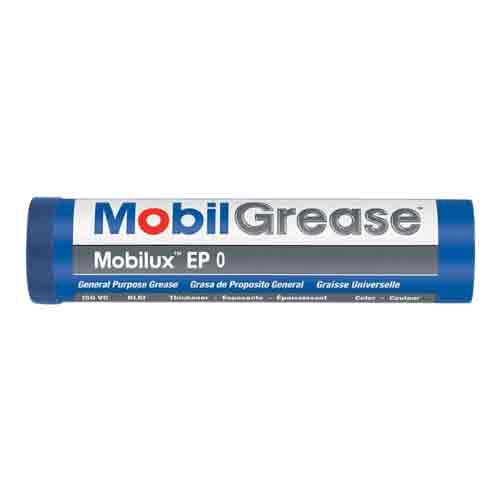Polyurea Grease Vs Moly: The Ultimate Guide With Pros & Cons

Polyurea Grease Vs Moly. Polyurea grease is made from synthetic materials and has a high dropping point. This type of grease is also resistant to water washout.
Moly grease, on the other hand, is made from petroleum products and does not have as high of a dropping point. However, moly grease does have better resistance to extreme pressure and wear than polyurea grease.
Molybdenum disulfide, or moly, is an inorganic compound composed of molybdenum and sulfur. It exists as the dark gray or black powder that is widely known as “moly grease.”
Molybdenum disulfide is an extremely effective lubricant; it is often used as a dry film lubricant because of its low friction properties.
It has a wide temperature range, high load-carrying capacity, and good resistance to water and chemicals.
Polyurea grease is a newer type of grease that offers many advantages over traditional molybdenum disulfide grease. Polyurea grease has a higher melting point, meaning it can withstand higher temperatures without breaking down.
It also has better resistance to water washout, making it ideal for use in wet environments. Additionally, polyurea grease has excellent load-carrying capacity and extreme pressure properties.
Let’s take a look at the differences between Polyurea Grease vs Moly grease to see which one is right for your needs.

Polyurea Grease Vs Moly Lubricant – What is the Best?
| Polyurea Grease | Moly greases |
| Polyurea grease is significantly more costly than Moly grease | Moly grease is significantly cheaper than Polyurea grease |
| Less anti-wear capabilities | Moly grease provides superior anti-wear capabilities |
| It has a high content of polyisobutylene (PIB) and polydimethylsiloxane (PDMS) | It is an inorganic compound of molybdenum and sulfur with the formula MoS. |
| Polyurea is not disulfide | Molybdenum disulfide |
What is polyurea grease?
A compound. It is used in many applications. There are many compounds of molybdenum with sulfur and other elements, using the formula MoS. There are also many compounds with no sulfur but still, work as a good lubricant. The compound that is used in moly grease is MoS.
Types of greases
There can be different types of greases. The different types of greases are:
LITHIUM GREASE
LITHIUM GREASE is a synthetic grease used in the automotive industry. It is often used in motors where weight and fuel efficiency are important factors.
Lithium grease allows the engine to run smoothly in high-temperature areas of the engine but is poor at providing lubrication when it gets too cold. Lithium grease has an operating temperature range of −55 °C to +110 °C.
BARIUM COMPLEX GREASE
BARIUM COMPLEX GREASE is a special high-performance grease. Barium complex greases are often used in the aerospace industry.
Greases with different bases, such as calcium soaps, zinc soaps, lithium soaps, and sodium soaps, are used to formulate this grease because of the dispersed solids in the grease matrix. The solids can be barium sulfate or barium carbonate.

Read More About When Not To Use Moly Grease
ALUMINIUM COMPLEX GREASE
ALUMINIUM COMPLEX GREASE reduces friction between shafts and bearings in machines. Aluminum complex greases are often used in the aerospace industry.
BENTONE (CLAY) GREASE
BENTON (CLAY) GREASE is a special high-performance grease used in various applications.
SODIUM GREASE
SODIUM GREASE is often used in marine applications. It is a very thick grease that does not allow water to penetrate it, allowing it to be ideal for marine environments where water can cause grease problems.
POLYUREA GREASE
POLYUREA GREASE is used in high-temperature applications. It is often used for tools and machines exposed to high temperatures so that the grease does not deteriorate as quickly as it might otherwise.
BASE OIL
BASE OIL is often used in machines where lubrication is needed. A lubricated surface allows an object to move freely. For example, a knife requires a lubricant to slide across the knife’s surface so it can cut the food.
Is Moly grease better than lithium grease?
No, it is not better than lithium grease. It can be used for any climate conditions. They work very well in wet and cold climate conditions.
Moly grease is safe for engines. It does not react with the engine and does not affect the corrosion of the inside of an engine. It also has good tensile strength, which means it will not break like ordinary oils, etc. Moly grease is non-irritating and is safe on any part of the engine.
When should you not use Moly grease?
Do not use moly grease if the temperature is above 45 °C because it will evaporate more quickly. You should not use moly grease in an automatic car because an automatic lubrication system does not work well with moly grease.
Do not use moly grease if you are going to be racing because the properties of molybdenum disulfide are that it gives off a lot of heat when speeds above 140 km/h for more than two minutes.
Moly grease will help keep the engine cool, but still, do not race at high speeds for long periods of time
John Deere Polyurea Grease Compatibility
John Deere Polyurea Grease Compatibility If you are looking for a grease that is compatible with John Deere products, then you will want to consider polyurea grease.
This type of grease is designed to work with bearings and other moving parts that are exposed to high temperatures and heavy loads.
It can also withstand extreme pressure and has excellent resistance to water and corrosion.

John Deere Sd Polyurea Grease Vs Lithium Grease
If you’re like most people, you probably don’t know much about the different types of grease used in machinery.
But if you’re a John Deere owner, it’s important to know the difference between John Deere SD Polyurea Grease and Lithium Grease. Here’s a quick rundown of each type of grease and its benefits:
1. John Deere SD Polyurea Grease
This grease is designed specifically for use in John Deere equipment. It’s a high-quality grease that provides excellent protection against wear, rust, and corrosion. It also has great water resistance and can withstand high temperatures.
2. Lithium Grease
Lithium grease is a general-purpose grease that can be used in a variety of applications. It’s not as specialized as John Deere SD Polyurea Grease, but it still offers good protection against wear, rust, and corrosion.
Lithium grease is also resistant to water and can withstand high temperatures.
Polyurea grease vs calcium sulfonate
Polyurea grease is much cheaper than calcium sulfonate. It is also more expensive than moly grease.
Polyurea grease has many benefits compared to calcium sulfonate, but it is a bit more expensive. It can be used for any climate conditions and does not have to be removed in low-temperature environments as calcium sulfonate does.
Are there any downsides of polyurea grease?
Polyurea grease is lower in viscosity and contains a higher amount of PIB than calcium sulfonate. It also contains polydimethylsiloxane (PDMS) which makes polyurea more expensive than calcium sulfonate.
Polyurea Shear Stable Grease
Polyurea Shear Stable Grease is a versatile, all-purpose grease that can be used in a variety of applications. It is ideal for use in high-temperature, high-pressure environments and provides excellent protection against wear and corrosion.
Polyurea Shear Stable Grease also has excellent shear stability, meaning it will not break down or lose its lubricating properties even under extreme conditions.

Read More About Green Grease 101 Vs 203
Why use polyurea grease in electric motors?
Polyurea grease is used in electric motors because of its anti-corrosive properties. It is more resistant to oxidation and thermal stability when compared to moly grease.
Polyurea grease has different physical and mechanical properties than molybdenum disulfide, which are why they are used in different applications. Molybdenum disulfide is a liquid with a melting point of 135 °C, while polyurea is solid with a melting point of 235 °C.
What is a polyurea thickener?
Polyurea thickener is an inorganic compound that is used in lubricating grease. It is an organic compound and it has a melting point of 235 °C. It is high-temperature resistant and stable to oxidation.
The formula of polyurea thickener is MoS (Molybdenum Sulfide). The chemical compound of polyurea thickener contains MoS.
Bearing Grease
Bearing grease is a type of lubricant that helps to keep bearings functioning properly. Bearings are components in machinery that allow two moving parts to rotate smoothly and with less friction.
Grease helps to protect bearings from wear and tear, and can also help to keep them cool by providing a barrier between the bearing and the heat generated by friction.
There are many different types of bearing grease available on the market, each formulated for specific applications. For example, some greases are designed for high-speed applications while others may be better suited for low-temperature environments.
Choosing the right grease for your application is important in order to ensure optimal performance and longevity of your bearings.
When it comes time to apply bearing grease, there are several methods that can be used depending on the size and type of bearing being lubricated.
The most common method is known as “grease packing” which involves filling the cavity of the bearing with an appropriate amount of grease before reassembling the component.
Another popular method is called “grease injection” which uses a pump to force grease into the bearing through small holes in its housing.
No matter what method you use, it’s important to make sure that all excess grease is removed from the surface of the bearing before operation. Excess grease can attract dirt and debris which can ultimately lead to premature bearing failure.
Grease Oil
Grease is a semisolid lubricant. It consists of a soap emulsified with mineral oil or vegetable oil. The main purpose of grease is to keep moving parts lubricated and protected from corrosion and wear.
There are many different types of grease, each designed for specific applications. For example, automotive greases are designed to withstand high temperatures and heavy loads, while food-grade greases are safe for contact with food products. Grease is also classified by its base oil – mineral, synthetic, or vegetable.
Mineral-based greases are the most common type of grease. They are made from refined petroleum products and have good resistance to water and high temperatures. However, they can break down at high temperatures and may be incompatible with some plastics and rubbers.
Synthetic greases are made from chemically modified oils that improve performance in extreme conditions – either very cold or very hot temperatures or both.
They often contain additives that further enhance their performance properties. Synthetic greases typically cost more than mineral-based greases but can provide better value in some applications.
Vegetable-based greases are made from plant oils such as soybean oil or palm oil. They tend to be biodegradable (unlike petroleum-based products) and have good low-temperature properties.
However, they can degrade quickly at high temperatures and may not perform as well as other types of grease in extreme conditions.
Is moly grease good for high-speed bearings?
Yes, it is good for high-speed bearings. The small particles of moly grease will help reduce friction and allow the bearings to turn faster. Moly grease is also good for those who run their car in high-speed gear ratios because this type of lubrication system can not be used anymore.
The time that an auto transmission can be used up is usually less than 3 hours and the graphite gets dry, which means it needs new parts. The use of moly grease also reduces internal friction in the engine which makes it more efficient with fuel consumption.

Do I need to use Moly with automatic lubrication?
Yes, you need it if you are using an automatic lubrication system. This type of lubrication system does not work well without moly grease. Do not use synthetic oils on automatic lubrication systems.
The synthetic oils will cause the (4-speed) automatic transmission to fail prematurely. The synthetic oils will cause the clutch to burn up and go out of time making the car hard or impossible to shift.
Synthetic oils are also not good for older engines (pre-1999) because they tend to break down seals in the engine.
Molybdenum disulfide is used in brake assemblies and clutch plates on V brakes. The benefit of using molybdenum disulfide is that it does not build up as ordinary oil would, a few drops are all that is required for an oil change.
FAQs
What is Polyurea Grease Used For?
Polyurea grease is a type of synthetic grease that is created by combining two substances, polyurethane, and amine. This combination creates a new substance that has unique properties not found in either of the original ingredients.
Polyurea grease is known for its high-temperature resistance and its ability to withstand extreme pressure.
Is Lithium Grease Compatible With Polyurea Grease?
Yes, lithium grease is compatible with polyurea grease. They are both synthetic lubricants that can withstand high temperatures and pressures.
What is Moly Grease Best Used For?
Moly grease is a type of grease that contains molybdenum disulfide, which is a lubricant. It is used in high-pressure applications where there is a lot of friction, such as in automotive bearings and gears. Moly grease can withstand high temperatures and has excellent wear resistance.
Is lithium grease better than regular grease?
Yes, it is better than regular grease. It has higher levels of oxidation stability, lasts longer, and is a better anti-wear agent. It lasts longer than regular grease, which means it is more expensive.
Which Grease Should I Use
Conclusion
Polyurea Grease Vs Moly. Moly grease is a type of grease that contains molybdenum disulfide, which is a solid lubricant.
Moly grease is used in high-temperature applications where other greases would break down. Polyurea grease is a newer type of grease that contains polyurea, which is a synthetic polymer.
Polyurea grease has better resistance to water and high temperatures than moly grease.






